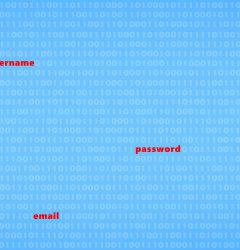Your Password is Basically Useless
16 Oct

It really is.
We’ve all been told to create “strong” passwords—use a jumble of letters, numbers, and symbols, and make it so complicated that you can never remember it. But honestly, your password doesn’t matter that much anymore.
A strong password is still better than something like “123456” or “password1” (yes, people still use those), but the real issue isn’t how strong your password is—it’s that passwords alone aren’t enough anymore.
What’s Wrong with Passwords?
Hackers have evolved. They don’t just sit there trying to guess your password one at a time. Instead, they use powerful tools and stolen data to crack even the toughest passwords in minutes. If you think your “P@ssw0rd!” is safe, think again. It’s probably sitting in a leaked database somewhere just waiting to be used.
Enter Multi-Factor Authentication (MFA)
MFA is the game changer here. With MFA, even if a hacker gets hold of your password, they can’t get into your accounts without that second (sometimes more) factor of authentication, like a code from your phone or a fingerprint/face scan.
Think of MFA as the security guard at the door who won’t let anyone in unless they can prove they’re really you. It’s that simple—and it works.
MFA isn’t perfect, but it’s definitely a step in the right direction for securing your accounts.
Just remember to never give your second-factor credential to anyone.
What’s Better than a Password?
No password.
Yup, we’re moving toward a future where passwords are irrelevant. You’ll soon be logging in to your systems using biometrics, secure apps, or hardware keys. These methods aren’t just safer—they’re much easier.
What Can You Do Right Now?
Enable MFA Everywhere – Seriously, everywhere. Email, banking, social media, business tools—you name it. If it has the option to enable MFA, do it.
Use a Password Manager – For now, passwords are still a thing, so make them unique for every site and let a manager handle them. Password managers only require you to remember one complicated password, while remembering all the others for you. Again, enable MFA on your password manager to help keep it secure.
Start Exploring Passwordless Options – More platforms are allowing you to go passwordless, so if you see that option, give it a try. As more companies adopt passwordless authentication, you’ll start seeing it in everyday places like your bank or Instagram.
In Conclusion
Don’t stress about creating the perfect password for every site you use. Instead, focus on securing your accounts with stronger, smarter methods like MFA and passwordless tech.
Hackers are getting better, and we need to stay one step ahead.
Cheers,
Richard



Recent Comments